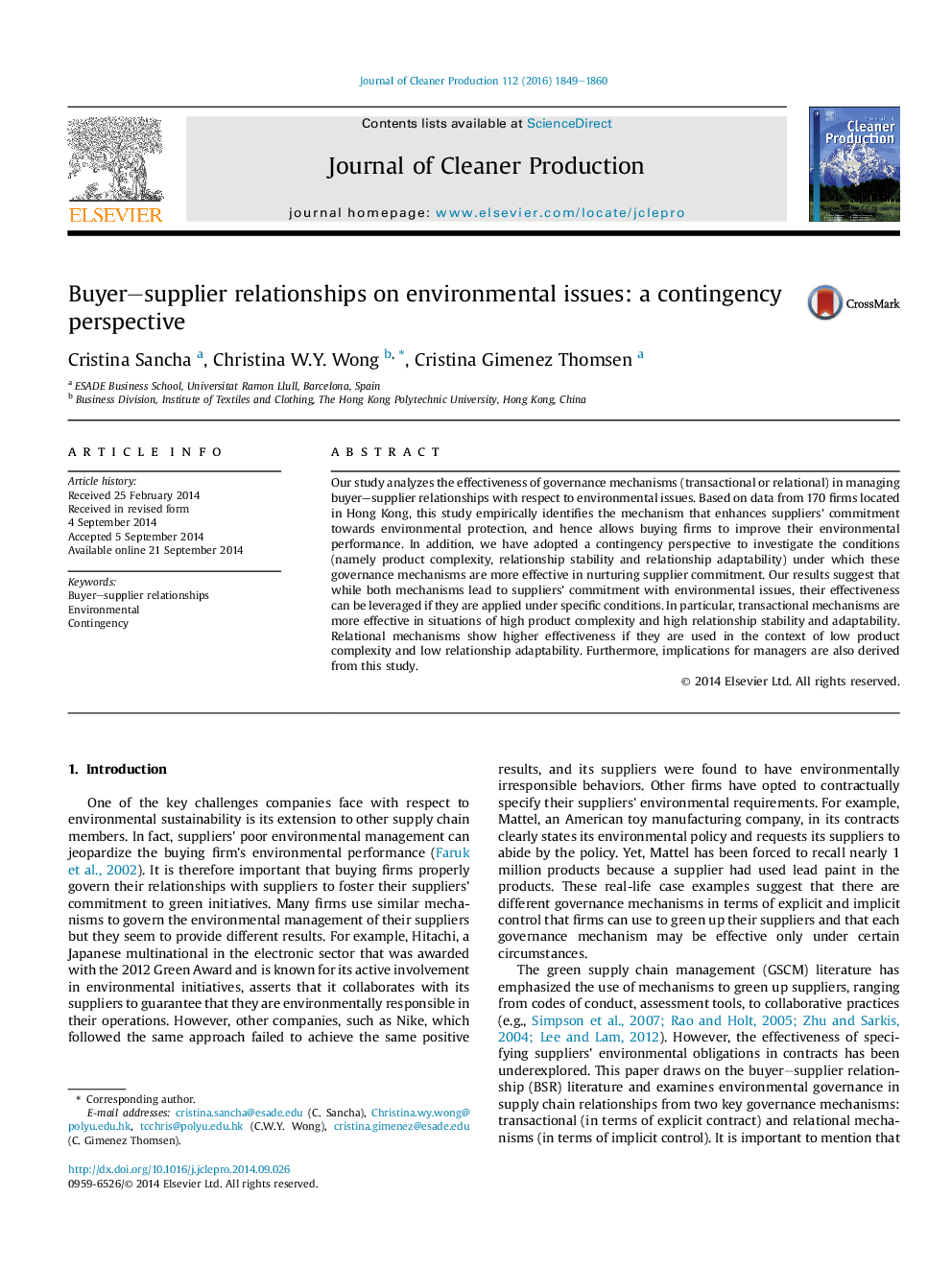| Article ID | Journal | Published Year | Pages | File Type |
|---|---|---|---|---|
| 1744244 | Journal of Cleaner Production | 2016 | 12 Pages |
Our study analyzes the effectiveness of governance mechanisms (transactional or relational) in managing buyer–supplier relationships with respect to environmental issues. Based on data from 170 firms located in Hong Kong, this study empirically identifies the mechanism that enhances suppliers' commitment towards environmental protection, and hence allows buying firms to improve their environmental performance. In addition, we have adopted a contingency perspective to investigate the conditions (namely product complexity, relationship stability and relationship adaptability) under which these governance mechanisms are more effective in nurturing supplier commitment. Our results suggest that while both mechanisms lead to suppliers' commitment with environmental issues, their effectiveness can be leveraged if they are applied under specific conditions. In particular, transactional mechanisms are more effective in situations of high product complexity and high relationship stability and adaptability. Relational mechanisms show higher effectiveness if they are used in the context of low product complexity and low relationship adaptability. Furthermore, implications for managers are also derived from this study.
